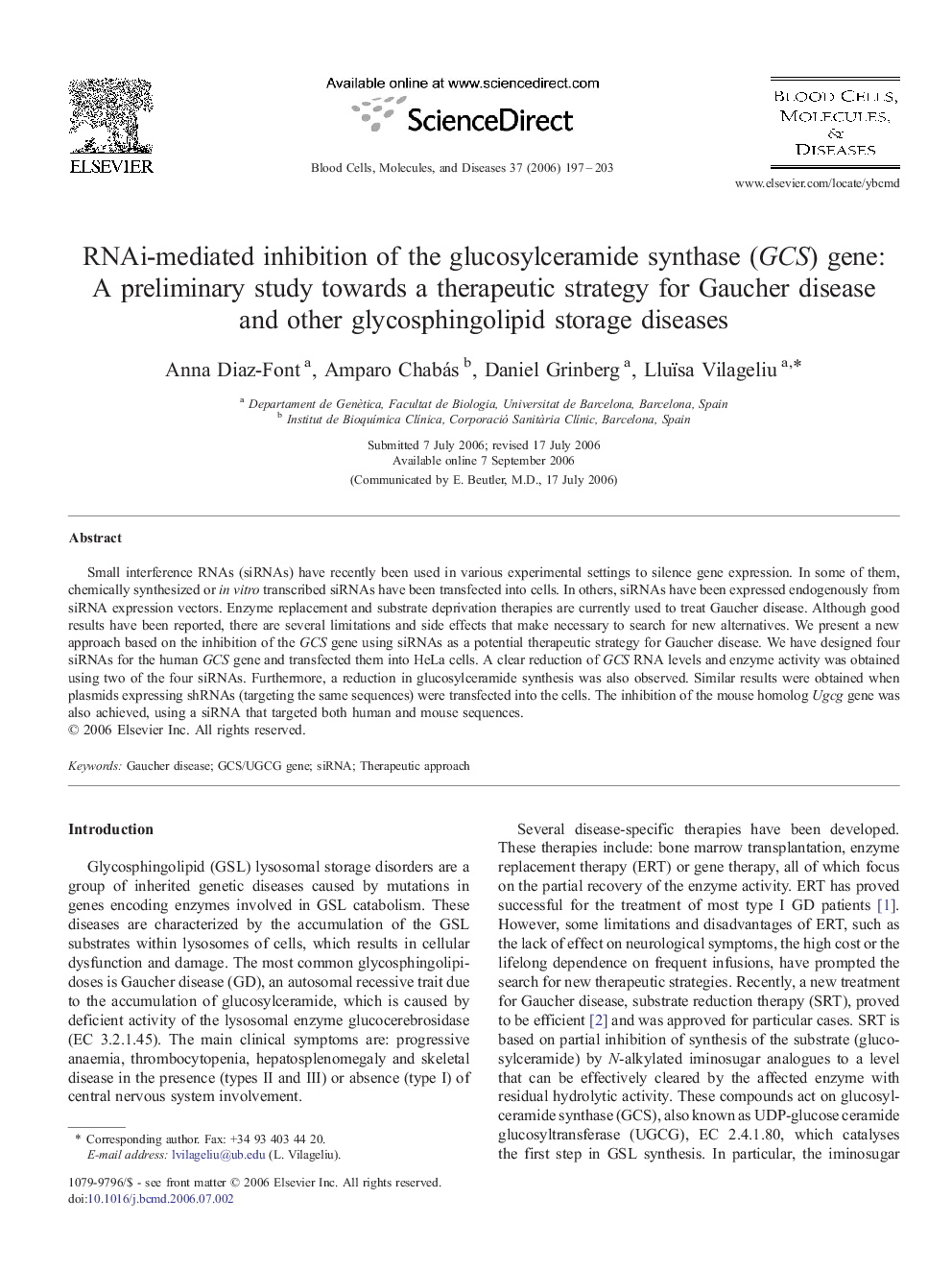| Article ID | Journal | Published Year | Pages | File Type |
|---|---|---|---|---|
| 2828338 | Blood Cells, Molecules, and Diseases | 2006 | 7 Pages |
Abstract
Small interference RNAs (siRNAs) have recently been used in various experimental settings to silence gene expression. In some of them, chemically synthesized or in vitro transcribed siRNAs have been transfected into cells. In others, siRNAs have been expressed endogenously from siRNA expression vectors. Enzyme replacement and substrate deprivation therapies are currently used to treat Gaucher disease. Although good results have been reported, there are several limitations and side effects that make necessary to search for new alternatives. We present a new approach based on the inhibition of the GCS gene using siRNAs as a potential therapeutic strategy for Gaucher disease. We have designed four siRNAs for the human GCS gene and transfected them into HeLa cells. A clear reduction of GCS RNA levels and enzyme activity was obtained using two of the four siRNAs. Furthermore, a reduction in glucosylceramide synthesis was also observed. Similar results were obtained when plasmids expressing shRNAs (targeting the same sequences) were transfected into the cells. The inhibition of the mouse homolog Ugcg gene was also achieved, using a siRNA that targeted both human and mouse sequences.
Related Topics
Life Sciences
Biochemistry, Genetics and Molecular Biology
Molecular Biology
Authors
Anna Diaz-Font, Amparo Chabás, Daniel Grinberg, Lluïsa Vilageliu,
